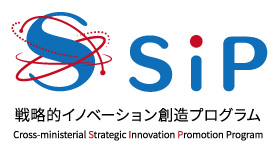C1-05 Utilization of recycled material databank and development of business model in the Southeast Asia
Principal Investigator
MASUI Yusuke (NAGASE & CO., LTD.)
Research and Development Overview
Objective
We will establish a system that reliably supplies recycled materials by utilizing a recycled material databank and related resources for Japanese automotive manufacturers to satisfy the requirement under the ELV regulation*1 draft.
*1 End-of-life vehicles regulation: New rules for the design and end-of-life management of vehicles aim to protect the environment, decarbonize production and reduce raw material dependencies, benefiting EU industries.
Procurement of recycled materials
Recycled materials will be procured from Thailand and Vietnam, with a focus on the recycled material market in Southeast Asia rather than on the domestic market. In collaboration with the C1-02 Recycled Material Databank, information on recycled materials in Southeast Asia will be collected, and samples for ELV demonstration tests will also be acquired.
Collection of information for expanding the use of recycled materials
Collect necessary information for constructing a recycled material value chain in Thailand and Vietnam. In addition, best practices will be proposed to expand the distribution and use of recycled materials in Southeast Asia.
Development of a business model
A business model will be developed to improve both the quality and quantity of recycled materials by leveraging SIP outcomes including the recycled material data bank, PLA-NETJ, and SIP Lab.
Promotion of international standards
In cooperation with efforts by relevant government agencies and SIP project members to promote rulemaking and international standardization, market trends in Southeast Asia will be investigated. Based on these findings, proposals for actions that Japan should take in the region will be developed.

